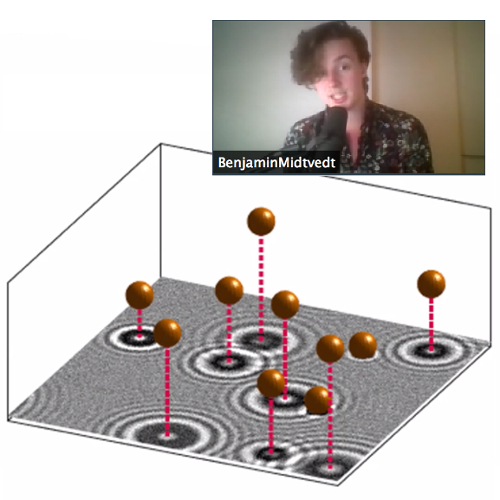Benjamin Midtvedt defended his Master Thesis in Engineering Mathematics and Computer Science at Chalmers University of Technology on 15 June 2020. Congrats!

Despite the rapid advancement of deep-learning methods for image analysis, they remain underutilized for the analysis of microscopy images. State of the art methods require expertise in deep-learning to implement, disconnecting the development of new methods from end-users. The packages that are available are typically highly specialized, challenging to reappropriate, and almost impossible to interface with other methods. Finally, training deep-learning models often requires large datasets of manually annotated images, making it prohibitively difficult to procure training data that accurately represents the problem.
DeepTrack is a deep-learning framework targeting optical microscopy, designed to account for each of these issues. Firstly, it is packaged with an easy-to-use graphical user interface, solving standard microscopy problems with no required programming experience. Secondly, it bypasses the need for manually annotated experimental data by providing a comprehensive programming API for creating representative synthetic data, designed to exactly suit the problem. DeepTrack creates physical simulations of samples described by refractive index or fluorophore distributions, using fully customizable optical systems. To accurately represent the data to be analyzed, DeepTrack supports arbitrary optical aberration and experimental noise. Thirdly, many standard deep-learning methods are packaged with DeepTrack, including architectures such as U-NET, and regularization techniques such as augmentations, decreasing the barrier to entry. Finally, the framework is fully modular and easily extendable to implement new methods, providing both longevity and a centralized foundation to deploy new deep-learning solutions.
We demonstrate the versatility of DeepTrack by training networks to solve a broad range of common microscopy problems, including particle tracking, cell-counting in dense biological samples, multi-particle 3-dimensional tracking, and cell segmentation and classification.
Master Programme: Engineering Mathematics and Computer Science
Supervisor: Giovanni Volpe
Examiner: Giovanni Volpe
Opponents: Aykut Argun and Saga Helgadóttir
Time: 15 June 2020, 16:00
Place: Online via Zoom